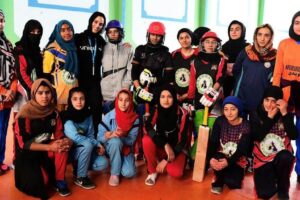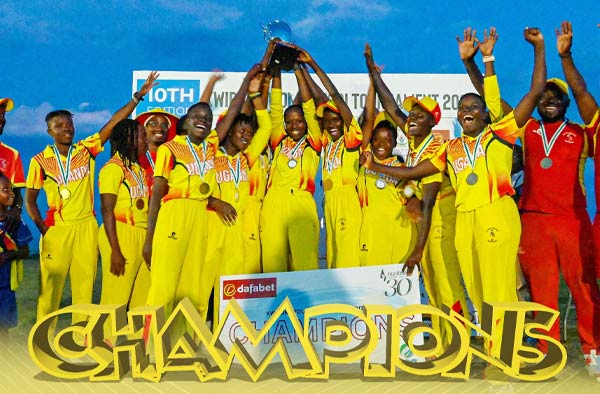The African Nation Shines as Host of T20 Memorial Cricket Tournament
In 1994, Rwanda experienced a horrific genocide. Over 800,000 people, mostly Tutsi, were killed in just 100 days. The violence began on April 7, one day after the Rwandan president’s plane was shot down. Hutu extremists blamed the Tutsi and used this event to launch a planned campaign of mass murder. They spread hate through media and encouraged people to kill.
Militias like the Interahamwe led the killings, often using machetes, clubs, and guns. Government officials and local leaders helped organize the attacks. In many cases, neighbors turned against neighbors. Churches and schools, usually seen as safe places, became killing grounds. Entire families were wiped out.
The international community saw what was happening but failed to act. The United Nations had peacekeepers in Rwanda, but they were not allowed to intervene. Many countries chose not to get involved. As the killings spread, fear and silence grew. The world’s failure to stop the genocide remains a lasting tragedy.
By July 1994, the Rwandan Patriotic Front (RPF) had taken control of the country. They stopped the killings and forced the genocidal government to flee. Survivors were left with deep emotional and physical scars. Many children lost their parents and homes. Rwanda has since worked to rebuild and promote unity, but the memories remain painful.
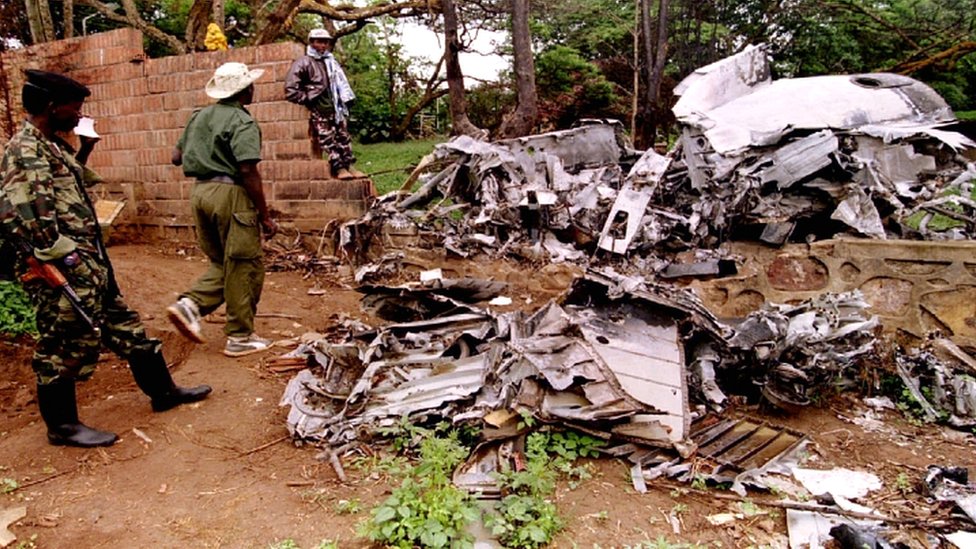
A Tragedy Memorialized
Hotel Rwanda is a movie released in 2004. It tells the true story of Paul Rusesabagina, a hotel manager in Kigali. During the genocide, he sheltered over 1,200 people in the Hôtel des Mille Collines. He used his position, money, and courage to protect them from being killed. The film shows the horrors of the genocide and one man’s brave actions.
The movie is based on real events from the 1994 genocide against the Tutsi in Rwanda. It focuses on the early days of the killings and the international community’s failure to help. While not all scenes are completely accurate, the story is rooted in true events. Many survivors and witnesses confirmed the basic events shown. The film helped people around the world learn about the genocide.
Hotel Rwanda received strong praise for its powerful message and acting. Don Cheadle, who played Paul Rusesabagina, was nominated for an Academy Award. The film was also nominated for Best Original Screenplay and Best Actress (Sophie Okonedo).
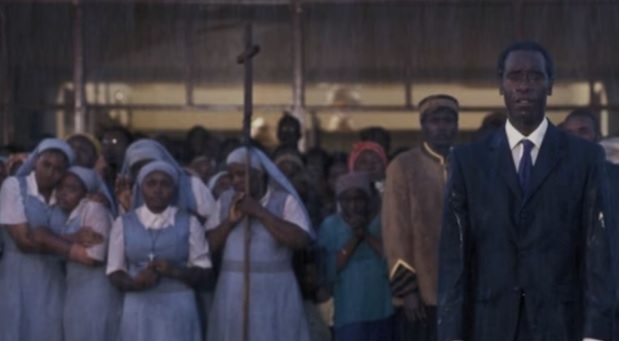
History of the Kwibuka Tournament
The Kwibuka T20 tournament is an international women’s cricket event held every year in Rwanda. “Kwibuka” means “remember” in Kinyarwanda, Rwanda’s national language. The tournament honors the memory of the victims of the 1994 genocide against the Tutsi. It also promotes peace, unity, and healing through sport. Teams from different countries are invited to take part.
The event is organized by the Rwanda Cricket Association. The tournament began in 2014 as part of Rwanda’s national remembrance activities. The date was twenty years after the genocide. It gives young women a chance to compete and grow through international cricket. Countries like Kenya, Uganda, Nigeria, and Botswana have taken part. Rwanda also uses the event to promote women’s sports and leadership. Cricket has become a symbol of hope and renewal in Rwanda.
Players and fans take time during the tournament to remember those who died. They hold moments of silence and attend memorial events. The tournament shows how Rwanda is using sports to move forward. Cricket, once new to Rwanda, has become a symbol of peace. The Kwibuka T20 is now a key event in women’s cricket in Africa.
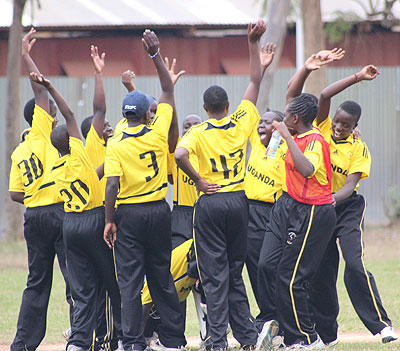
The History of Rwandan Cricket
Cricket in Rwanda is a story of growth, resilience, and unity. The sport was introduced in the early 2000s by Rwandans returning from exile in cricket-playing nations. The Rwanda Cricket Association (RCA) was founded in 1999 and has since worked hard to promote cricket across the country. At first, cricket was played casually, but it gradually gained support, especially among youth. Today, it is seen as a symbol of peace and progress.
The men’s national team played its first international matches in the early 2000s. In 2017, Rwanda became an Associate Member of the ICC. Since 2019, all of its Twenty20 matches have full T20 International status. Players like Eric Dusingizimana and Orchide Tuyisenge have become national stars, each scoring over 1,000 runs for Rwanda. Dusingizimana also set a world record in 2016 by batting for 51 hours straight to raise funds for a cricket stadium.
The women’s national team debuted in 2007 and competed in the 2008–09 East African Championship. In 2014, Rwanda began hosting the annual Kwibuka T20 tournament, honoring victims of the 1994 genocide and promoting women’s cricket. The team has grown stronger each year and, in 2023, the U19 women shocked the world by beating the West Indies in the U19 T20 World Cup. Players like Cathia Uwamahoro, Marie Bimenyimana, and Henriette Ishimwe have led the way.
A major step forward was the opening of the Gahanga International Cricket Stadium in 2017. It is now Rwanda’s home for international cricket and training. Cricket is also growing at the grassroots level, with many schools and communities involved. Today, cricket in Rwanda is not just a sport—it’s a tool for healing, hope, and national pride.
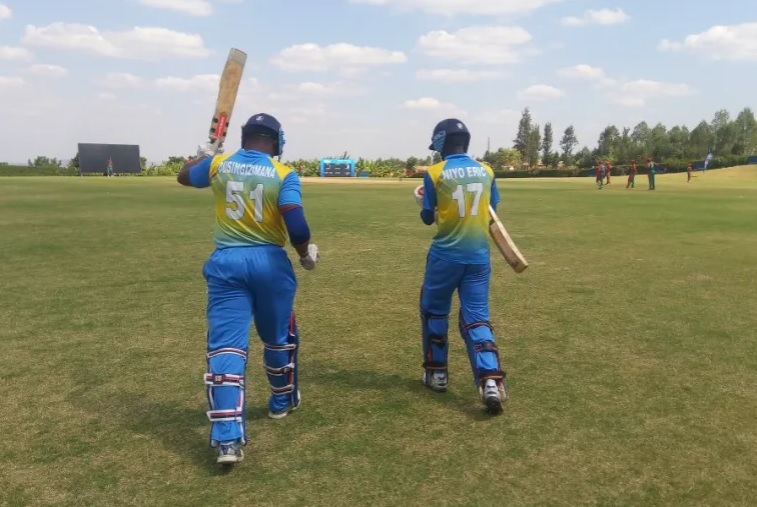
The Early Kwibuka Tournaments
The Kwibuka T20 tournament started in 2014 in Rwanda. It was created to honor victims of the 1994 genocide against the Tutsi. “Kwibuka” means “remember” in Kinyarwanda, the national language of Rwanda. The event also helps promote peace and unity through sport. Only Rwanda participated in the first edition.
In 2015, the tournament expanded to include Uganda. The teams played friendly matches with a focus on remembrance and unity. The games were competitive but aimed to build relationships. Official results for the early years are not well documented. These early editions helped lay the foundation for future growth.
From 2016 to 2018, the tournament welcomed more teams from East Africa. Rwanda, Uganda, Kenya, and Tanzania all joined at different points. The format remained simple, but the event gained more attention. It gave African women cricketers a rare chance to compete internationally. Winners from these years are not clearly recorded.
In 2019, Tanzania won the tournament for the first time. They played strong, consistent cricket and beat Kenya in the final. This marked the start of Tanzania’s rise in African women’s cricket. The tournament received more media coverage that year. It was also praised for promoting women’s sport in Rwanda.
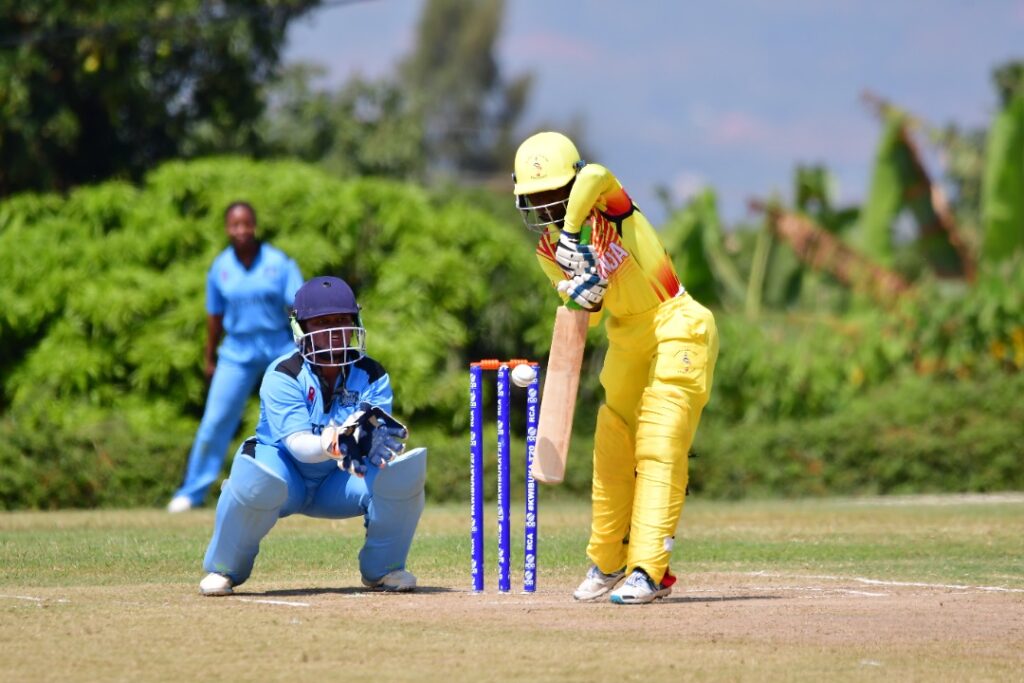
Kwibuka Before and After Covid
The tournament was not held in 2020 because of the COVID-19 pandemic. Travel restrictions and health concerns made it impossible. Organizers focused instead on planning for future editions. Players trained in isolation during the lockdown. The break made the next tournament even more important.
In 2021, Kenya won their fourth Kwibuka T20 title. They defeated Namibia in a strong final performance. This edition featured seven teams, including Nigeria and Botswana. It was one of the biggest editions yet. The event showed how much the tournament had grown.
Tanzania won again in 2022, claiming their third title. They beat Kenya in the final by 44 runs. The match was held at the Gahanga International Cricket Stadium. Tanzania’s players were praised for their skill and teamwork. The tournament also included strong teams from Nigeria and Botswana.
In 2023, Rwanda won their first-ever Kwibuka T20 title. They defeated Uganda by 6 wickets in the final. This victory was emotional for the host nation. Rwanda had hosted the tournament for years without winning. The moment was celebrated as a national achievement.
In 2024, Uganda took home their third title. They narrowly beat Zimbabwe A by just 2 runs in the final. It was a close and thrilling match. Uganda’s experience helped them stay calm under pressure. The tournament once again drew teams from across Africa.
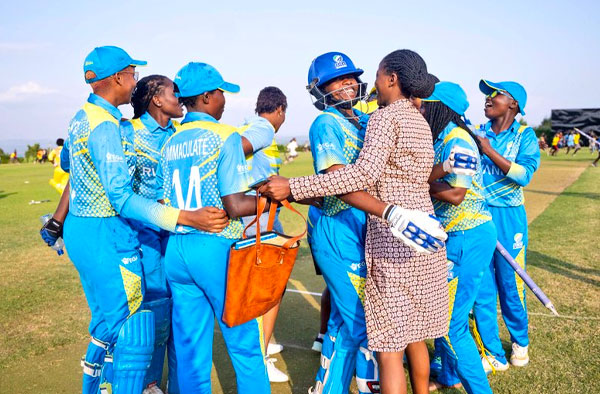
Top Batters in Kwibuka T20 Tournament History
2024 Kwibuka T20 Tournament
The 2024 tournament saw remarkable batting performances. Kelis Ndhlovu of Zimbabwe A led the charts with 295 runs in 8 innings, averaging 42.14. Uganda’s Prosscovia Alako followed closely, amassing 253 runs in 8 innings at an average of 31.63. Other notable contributors included Beloved Biza (188 runs), Immaculate Nakisuuyi (184 runs), and Queentor Abel (181 runs). Rwanda’s Diane Marie Bimenyimana also made a significant impact with 177 runs in 8 innings.
2023 Kwibuka T20 Tournament
In 2023, Kenya’s Queentor Abel topped the run charts with 206 runs, showcasing consistent form throughout the tournament. Her performance earned her the Player of the Series award. Rwanda’s Henriette Ishimwe also stood out, not just with the bat but also as the leading wicket-taker.
2022 Kwibuka T20 Tournament
The 2022 edition highlighted Uganda’s Kevin Awino as the leading run-scorer with 253 runs. Kenya’s Queentor Abel was named Player of the Series, reflecting her all-round contributions.
These performances underscore the growing competitiveness and talent in women’s cricket across Africa. Players like Kelis Ndhlovu, Prosscovia Alako, and Queentor Abel have consistently showcased their prowess on this platform.
Top Bowlers in Kwibuka T20 Tournament History
The Kwibuka Women’s T20 Tournament has showcased exceptional bowling performances over the years. Notably, Lilian Udeh from Nigeria set a remarkable record with the best bowling figures of 6/7 in a match, achieving an average of 5.11 across 7 innings in the 2024 edition. She also holds the record for the most four-wicket hauls in the tournament’s history.
Henriette Ishimwe of Rwanda has been a consistent performer, leading the wicket tally in the 2023 edition with 16 wickets in 9 matches, maintaining an average of 5.75 and an economy rate of 2.97. Her best bowling figures in a match were 4/6.
Sarah Bhakita Wetoto from Kenya delivered an outstanding performance in the 2024 final, taking 6 wickets for 16 runs in 3.5 overs. She was subsequently named the Best Bowler of the tournament, finishing with 17 wickets at an average of 4.82.
Alice Ikuzwe, also from Rwanda, has been a key bowler for her team, securing 15 wickets in 7 innings during the 2024 tournament, with an average of 6.06. Kelis Ndhlovu of Zimbabwe A has been another standout, taking 11 wickets in 8 innings in the 2024 edition, with an average of 10.90.
These bowlers have significantly contributed to their teams’ successes and have set high standards in the tournament’s history.
The Global Significance of the Kwibuka Tournament
The Kwibuka T20 Tournament holds significant moral value for both cricket and society globally. First, it honors the memory of the victims of the 1994 genocide against the Tutsi in Rwanda. By dedicating the tournament to remembrance, it encourages participants and spectators to reflect on the importance of peace, unity, and tolerance. The event fosters reconciliation and healing, particularly for the Rwandan people, whose lives were deeply affected by the genocide.
The tournament also promotes gender equality by focusing on women’s cricket. It provides female players from across Africa the opportunity to showcase their talents and represent their countries. This promotes women’s empowerment, challenging gender norms and encouraging young girls to pursue sports.
In addition, the tournament serves as a platform for international collaboration. Teams from different countries come together, transcending cultural and political boundaries. This global gathering highlights cricket’s role in building bridges between communities, offering a space for understanding and friendship.
The Kwibuka T20 sends a powerful message about resilience, hope, and the potential of sport to bring about positive social change. It demonstrates how sport can heal deep wounds, unite people, and inspire a shared commitment to building a peaceful and inclusive world. Through cricket, the tournament not only celebrates athleticism but also strengthens the moral values of respect, dignity, and solidarity.
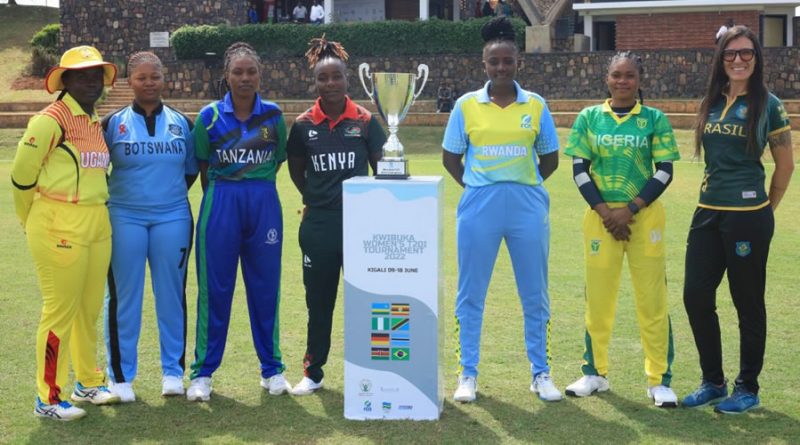
Conclusion
Rwanda is a country marked by resilience, having rebuilt itself after the horrors of the 1994 genocide. Its people are known for their strength, unity, and commitment to peace, which is reflected in the nation’s motto: “Unity is Strength.” The country’s rapid economic development, stunning landscapes, and rich culture, alongside its emphasis on environmental conservation and gender equality, make Rwanda a beacon of hope in Africa.
The most emotional and impactful scene in Hotel Rwanda occurs when Paul Rusesabagina, the hotel manager, watches a group of Tutsi refugees being turned away from a UN checkpoint, knowing they will be slaughtered. As they plead for help, Paul’s face reveals his helplessness, knowing the world is ignoring their suffering. The sheer desperation and tragedy of the moment highlight the brutal reality of the genocide and Paul’s personal struggle to protect those he loves.
Rwandans honor genocide victims through Kwibuka, a national commemoration starting on April 7 each year, lasting 100 days. The Kigali Genocide Memorial, where over 250,000 victims are buried, hosts the Flame of Remembrance lit by the President to symbolize hope and resilience. Throughout this period, Rwandans engage in community gatherings, educational programs, and artistic expressions to ensure the atrocities are never forgotten and promote national healing and unity.
The Kwibuka T20 Tournament is significant as it honors the memory of the victims of the 1994 Rwandan genocide and promotes peace and unity through sport. The 2025 edition of the tournament is set to continue this tradition, with plans to attract more international teams and enhance the competition.
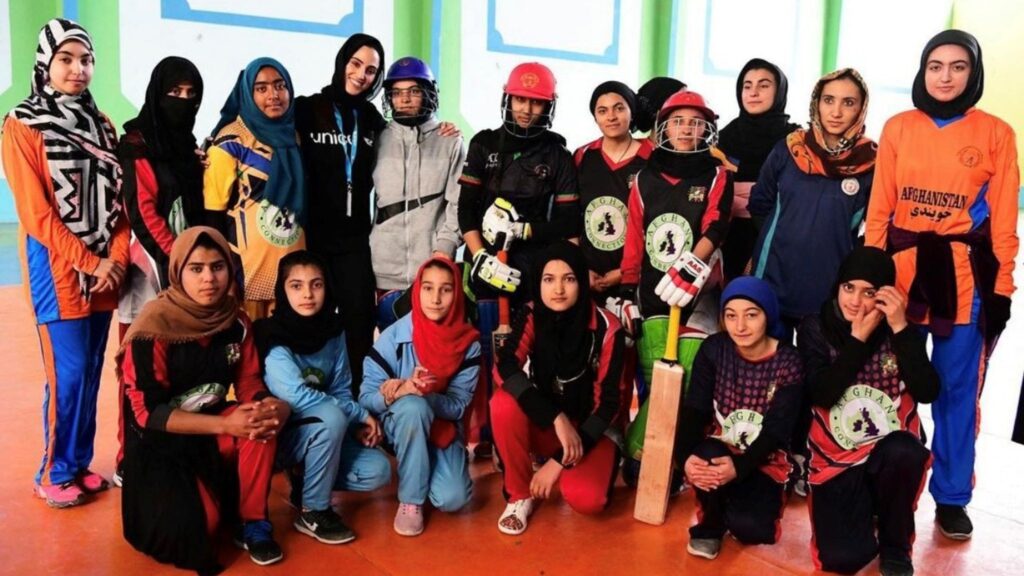
What Happened to the Afghanistan Women’s Cricket Team?
In the two years since the Taliban takeover, the 25 women selected by the former government of Afghanistan have slowly returned to public life. Most of them are living happy and safe in Australia. Three have moved to Canada including Roya Samim, Najiba Samim, and sister Lima Samim. Team manager Tuba Sanger also has found asylum in Canada. They continue to participate in cricket in the Northern nation. Read about their story here.



